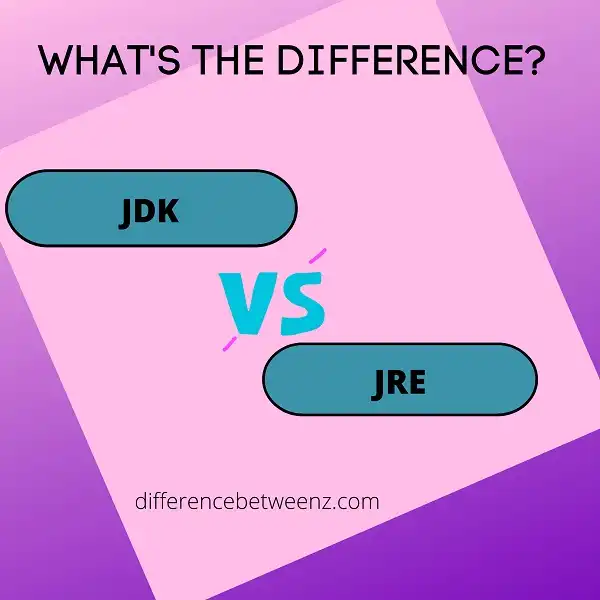Java Development Kit (JDK) and Java Runtime Environment (JRE) are both components of the Java software platform. The JDK includes the JRE, as well as tools for developing, debugging, and monitoring Java applications. The JRE provides the runtime environment for Java applications, including libraries and components necessary to run Java programs. In most cases, you don’t need to install the JDK separately from the JRE because it’s included in the JDK download package. But there are some cases where you might want or need to install just the JDK. This article explains when you’d need to install just the JDK, and how to do it.
What is JDK?
JDK, also known asJava Development Kit, is a software development environment used for developing Java applications and applets. JDK includes the Java Runtime Environment (JRE), a set of tools used for debugging, monitoring, and profiling java programs. JDK also provides a graphical user interface (GUI) toolkit called the Java Foundation Classes (JFC). JDK is available for free from Oracle Corporation.
What is JRE?
JRE is a platform-independent runtime environment that allows Java applications to run on a wide variety of systems. JRE includes the JVM, which interprets and executes Java code, as well as a set of libraries and other resources required by the JVM. JRE is bundled with the Java Development Kit (JDK), which includes everything needed to develop and deploy Java applications. JRE can also be obtained separately from the JDK. JRE is platform-independent, meaning that it can be used on any operating system that supports Java. JRE is available for Windows, Linux, Solaris, and macOS. JRE is free and open-source software released under the GNU General Public License. JRE is maintained by Oracle Corporation. Oracle provides updates to JRE on a regular basis.
Difference between JDK and JRE
JDK and JRE both contain a set of tools that are used for developing and running Java applications. JDK (Java Development Kit) is mainly used for developing Java applications. It contains a compiler, debugger, and other tools that are needed for developing Java code. JRE (Java Runtime Environment) is used for running Java applications. It only contains the necessary components that are needed to run a Java application. JDK is required to compile and run a Java application whereas JRE is only required to run a Java application. JDK should be used by Java developers whereas JRE can be used by end-users who just want to run a Java application. JDK and JRE are platform-independent and can be run on any operating system. JDK and JRE both contain a set of libraries that are needed to run a Java application. JDK also contains some additional libraries that are not present in JRE. JDK contains tools that are needed for compiling and debugging whereas these tools are not present in JRE. JDK should be installed on the system that is being used for development whereas JRE can be installed on any system where we just want to run a Java application.
Conclusion
In this blog post, we’ve outlined the key differences between a JDK and JRE. We hope that this information is helpful for you as you decide which Java development kit is best for your needs.


